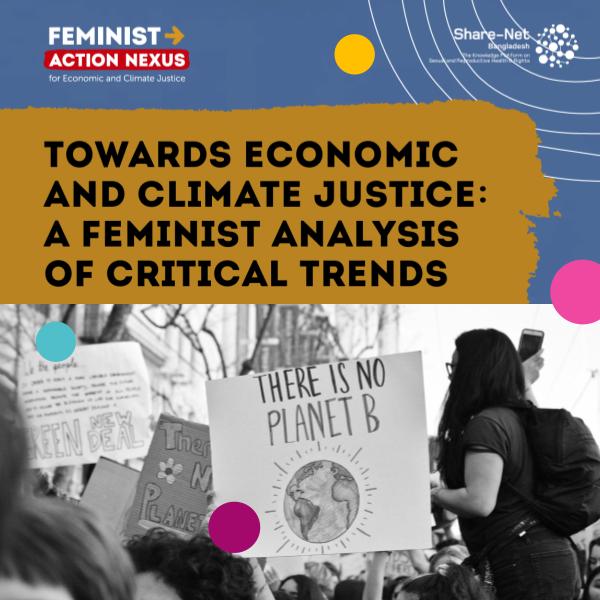Towards Economic and Climate Justice: A Feminist Analysis of Critical Trends
In the face of a complex web of crises spanning climate emergency, biodiversity loss, escalating debt, and deepening inequality, women, girls, and gender-diverse people find themselves disproportionately affected. The Feminist Action Nexus for Economic and Climate Justice, a collective advocacy initiative, has released a groundbreaking report assessing the global order’s distance from a radical vision for economic and environmental justice.
Shifting from Unsustainable Consumption: To achieve economic and climate justice, a fundamental shift away from unsustainable models of consumption and resource extraction is imperative. Unfortunately, the world’s wealthiest nations continue to profit from fossil fuels, neglecting their development finance obligations. If current income inequality trends persist, women are projected to achieve gender parity in labor income only by 2100.
Debt Distress and Inequality: Low-income countries face a surge in debt distress, diverting significant portions of government revenue away from essential services like education and health. The G20 Common Framework for Debt Treatments, established in 2020, has faced criticism for its failure to advance debt cancellation, limited scope, and its tendency to force countries into IMF programs.
Tax Abuse and Corporate Influence: Rampant tax abuse, with billions lost annually due to corporate tax evasion, disproportionately affects low-income countries, resulting in significant budget shortfalls for public health. While the OECD/G20 Inclusive Framework on Base Erosion and Profit Shifting falls short, hopes are high for a more democratic UN Framework Convention on Tax following recent proposals and resolutions.
IMF and World Bank Reforms: Despite recent agendas for gender, climate, and internal reform, the IMF and World Bank’s imposition of strict austerity measures during the pandemic has raised concerns. Fundamental shifts in their roles and structures are deemed necessary, starting with quota reform to redistribute power away from the richest countries dominating the IMF.
Gender and Trade Governance: Despite increased attention to gender in trade policies, global trade governance continues to adopt a siloed and neoliberal approach. Trade deals negotiated outside the WTO hinder Global South countries’ ability to implement regulations essential for achieving gender equality. The current trade regime promotes extractivist fossil fuel capitalism, hindering environmental standards implementation.
Corporate Capture and Multistakeholderism: The growing trend of “multistakeholderism” at the UN, ostensibly aimed at involving diverse stakeholders, has resulted in undue corporate influence in policy-making. Private-public partnerships endorsed by the UN, such as the proposed agreement with BlackRock, showcase the corporate capture of global governance, threatening the voice of governments.
Climate Finance and Gender-Responsive Strategies: While climate finance has grown annually, Global North countries have failed to fulfill their commitment to provide $100 billion annually by 2020. Disbursed mainly through loans, climate finance exacerbates the debt crisis and lacks a gender-responsive focus, neglecting the most vulnerable countries and failing to address loss and damage adequately.
In the pursuit of economic and climate justice, the Feminist Action Nexus emphasizes the urgent need to challenge profit-driven approaches and advocate for a radical transformation. The report underscores the importance of local activism and global advocacy in confronting the consequences of neoliberalism. As the world grapples with the interconnected challenges of the 21st century, a feminist perspective becomes crucial in shaping policies that prioritize social, reproductive, and climate justice for all.
Download ‘Towards Economic and Climate Justice’
